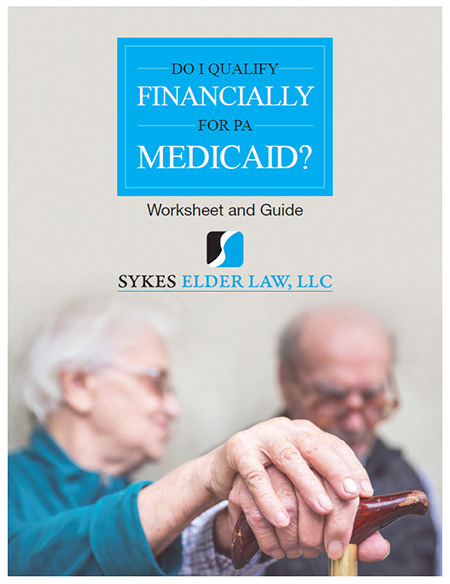You may have heard that a Medicaid applicant becomes ineligible for benefits as a result of giving away assets.
But what are the details?
First let me give you the rule, then we’ll examine the parts.
Rule: A Medicaid applicant will be found ineligible for benefits as a result gifts made during the look-back period. Calculation of the length of the ineligibility period (also called “penalty period”) depends on the amount of total gifts. That period begins to run when the applicant is otherwise eligible for benefits.
Gifts. If you’re a Medicaid applicant, the rules allow you to spend your money as long as you can show you received goods or services at a fair value in return. What gets penalized is a gift – that is, a transfer of assets for less than fair market value. Pennsylvania regulations define fair market value as the “price which property can be expected to sell for on the open market or would have been expected to sell for on the open market in the geographic area in which the property is located.” 55 Pa. Code §178.2.
Some people deed a house to one of their children for $1. If the house could be sold for $100,000, then Medicaid rules would count that transfer as a gift of $99,999.
Currently in Pennsylvania, no penalty period applies if total gifts in a calendar month were $500 or less. 62 P.S. § 441.5(a).
Some transfers are exempt from penalty, and therefore do not result in any penalty.
Look-back period. The rule applies only to gifts made during the look-back period, which you can read about here. Gifts made before don’t count.
Calculation. To calculate the period of ineligibility in Pennsylvania, the Department of Public Welfare divides the fair market value of the transferred property by the state’s penalty divisor (currently $266.70 per day, or $8,112.13 per month), a figure based upon the average statewide cost of nursing home care. Partial months are counted, but partial days are not.
For example, if an applicant gave his son $30,000 during the look-back period, then the penalty period will be calculated to be 112 days ($30,000 ÷ $266.70 = 112.49, rounded down to 112).
Other states similarly divide the gifted amount by a regional penalty divisor to calculate the days of ineligibility, but the amount of the penalty divisor varies.
When the penalty begins. The penalty period begins running when the transfer is made, or the date when the applicant would otherwise be eligible for benefits, whichever is later. For example, if an applicant gives his grandson $30,000 for college today, then applies for benefits four years from now, after suffering a stroke and spending down his other resources, the 112-day period of ineligibility will begin at the time of application.
But if a currently eligible Medicaid recipient deeds away his house today, the period of ineligibility would begin running today.
The take-away. Knowing the details of the ineligibility rules helps potential applicants make better planning decisions and (hopefully) avoid future ineligibility problems.





